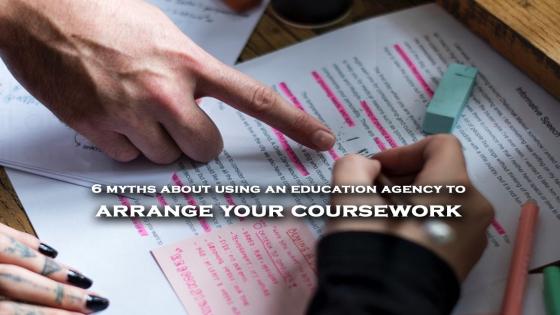If you’re anything like me, after years of thought, deciding to study abroad can occasionally be an impulse choice. I learned that planning a study abroad program is a huge task that requires a lot of effort, time, and occasionally money.
I learned that after doing my own research, I could apply to colleges directly or I could use an international education agency. Despite my skepticism and reservations, I decided to work with an agency because I was short on time and didn’t know where to start. All I knew was that I wanted to attend a top university in Australia to further my studies. I’m happy that I paid attention to my family friend who recommended IDP to me.
There are many myths in the world of foreign education brokers and advisors. However, I’m currently enrolled in the university of my dreams in Australia, and I think contacting an IDP counselor was the best choice I’ve ever made.
Many of you may be unsure about what to do due to contradictory evaluations on various online education companies. Though I can’t tell you about every foreign education agency, I can use my personal experience working with displaced people to debunk some prevalent myths. With any luck, this will assist you in avoiding the internal struggle.
1. The cost of the consultation is high
It’s free, if you can believe that. Alternatively, it ought to be. I recall how shocked my parents were to learn that the IDP counselor provided free services (apart from the fees associated with obtaining a visa, of course).
My parents carried cash to every meeting till the conclusion of my application procedure since they were not persuaded that there were no additional costs. However, the service was free all the way to the finish.
2. They select your universities on your behalf.
My dean advised me to make a list of every university I intended to apply to when I decided to study in Australia.
They only assisted me in my search for the top universities in my specialty; they had no further influence on my college decisions. My counselor really went above and beyond to assist me, from organizing my essay requirements to researching possible student housing.

3. They lack authenticity
Because of concerns about dishonest business methods, there are frequently doubts about the legitimacy or authenticity of agents and advisors. To be honest, that is a legitimate fear.
Finding registered agencies or those that have been suggested by dependable family members or friends is crucial for this reason. When examining your alternatives for an education agency, trust and reputation are crucial factors to consider, and selecting the ideal fit for you is crucial.
4. The selection of the nation affects the quality of the consultation.
From my observations, it didn’t. Professionals with years of experience and training were stationed in many nations at the IDP office I visited.
The quality of my consultations was further improved by their specific knowledge and proficiency regarding the various study places.
5. They make things more difficult, not easier.
I had thought that applying to universities was harder when you worked with an agency. But after I met my counselor, it was different. All I needed to do was submit the application-related materials I had.
By providing a list of the required documents in advance, my counselor helped me prepare and eased the application process. Additionally, if you choose to handle it yourself, they can provide professional guidance on any problems that may arise during the application process and could otherwise cause delays.
6. Their sole goal is to receive commissions from well-paying academic institutions.
My supervisor could have convinced me to reconsider my university choice if this were the case.
My counselor not only assisted me in applying to my favorite universities ahead of schedule, but they also provided me with invaluable support when my applications were returned with unsatisfactory feedback. If a different approach could be taken to address this matter, my counselor suggested it. And if they had been focused on making money from the beginning, I genuinely think they would not have progressed this far.
Applying for visas and universities is a laborious and time-consuming procedure. And making a mistake, like submitting the incorrect files or giving false information, might endanger your application and increase the likelihood that it will be rejected.
You can improve your chances of being admitted by avoiding these blunders and by going through an education office. My personal IDP experience speaks for itself, and I promise it’s well worth the investment.



